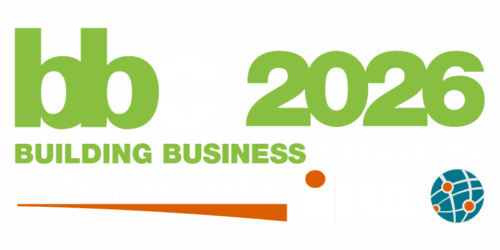Interviews * Session Previews
Unlock the Secrets to Achieving Growth and Overcoming Obstacles
Rochelle Tan
Tired of a chaotic work environment? Struggling with cross-dependencies and unsure how to overcome them? Look no further.
In this fast-paced world, speed, quality, and consistency are essential for staying ahead. Unfortunately, many organizations are at risk of becoming obsolete. They suffer from misalignment and lack of transparency, resulting in missed deadlines, overtime hours, low quality work, and demotivated teams.
This session will uncover the journey of a fintech company that successfully transformed their operations as a grassroots operation. Discover how they identified the need for change and leveraged both internal and external expertise to develop a model for success. Hear about their challenges, triumphs, and ongoing commitment to growth.
Don’t let obstacles hold you back. Learn from the best and pave your way to continuous improvement and success.
Product-Centric Organisation: path to advancing People and Value
Bola Adesope
A strategic inflection point is that moment when a combination of technological innovation, market evolution and customer perception requires the company to make a radical shift or die”. There is no gainsaying that we are at that strategic inflection point. We are in a VUCA (Volatile, Uncertain, Complex and Ambiguous) world and increasingly, organisations are coming to the harsh realization that their current organisational structure and management frameworks are not sufficient to succeed in the VUCA (Volatile, Uncertain, Complex and Ambiguous) world. We have seen radical changes in the current world. How then do organizations ensure they remain competitive and successful in the wave of global technological, cultural and market shift? Just implementing an Agile framework is not enough. To succeed in the new age of disruption, organizations require a more product-centric approach, a different operating model. In this presentation, we will explore the WHY, WHAT and HOW of a product-centric organisation, leveraging research and case studies and experience from the field.
Coupling BPM and OCM for Successful, Sustainable Process Change
Howard Webb
Business Process Management and Organizational Change Management are mature disciplines. Too often process practitioners, fail to recognize the value and power of combining the two. Process improvement failures too often get blamed on people and/or technology. The real failure is lack of proper planning and equipping for the inevitable change that come with process improvement. The best process designs, enabled by the coolest technologies fail to ‘stick’. See how a structured, disciplined and combined approach to BPM and OCM can greatly mitigate the risk of failure, and why both disciplines should be core components of any process improvement initiative.
Don’t let obstacles hold you back. Learn from the best and pave your way to continuous improvement and success.
Becoming Nimble: Igniting the adaptable organization through BA
Fabrício Laguna
Something must be wrong! A lot of organizations invested in Agile frameworks, trainings, and practices (sprints, scrums, retros!) and are still unable to deliver the speed and flexibility they desire. When they talk about Agile they usually struggle to differentiate DOING agile (by using methods and frameworks) from BEING agile (acting according to the agile mindset and achieving measurable results).
To avoid this ambiguity we prefer to use the term “NIMBLE”. Nimble was defined by IIBA in a Global Research for Business Leadership as “the scalable capability for organizations to sense and respond to change”. This study presents that the key to being nimble is not specific methods or frameworks, but the organization’s business analysis capability. Yes, you can play a key role in your organization’s nimbleness.
In this tutorial, Fabrício and Filip dive into the details of this IIBA report connecting its eight practices with tangible business analysis capabilities and related approaches.
ChatGPT: Your New AI Business Analyst BFF
Sakhi Aggrawal
Join us for an exciting session on how ChatGPT can be your AI (Artificial Intelligence) business analyst BFF (Best Friend Forever)! AI Technology and its advancements will have an impact on all organizations. So, what does that mean for business analysts and the work they do on organizational initiatives? In this presentation, we will explore the capabilities of ChatGPT and share practical guidance on how you can incorporate it into your existing business analysis workflows. This presentation will also provide real-world examples of ChatGPT’s application in business analysis along with specific chat prompts for business analysts to get desired answers that will highlight its benefits such as increased efficiency, accuracy, and consistency. The session is designed for business analysts and project management related practitioners, who are interested in exploring the potential of AI tools in their work.
Building Your Best Tool Kit
Heather Mylan-Mains & Thea Soehren
Business Analysis is the people business. People are the most complex thing that you need to understand in any project. Each of us brings past experiences, beliefs, memories, assumptions, fears, and much more into every conversation. To effectively navigate people and elicit needs and requirements, we need excellent communication, empathy and analysis skills. There are tools and techniques we should use to understand people and inspire them to accomplish their goals, have accountability and see their potential.
Do YOU have the tools you need to understand and inspire the people you work with? Join us to build yourself up and your tools!
Executing Capability-Based Business Transformation Initiatives
Terry Roach
Effective business transformation is not about transforming, but rather about building the capacity to continuously transform. Organisations need to develop the unique cognitive muscle to be able to pivot quickly, ensuring that business operations are continuously aligned with shifting priorities. Capability-based planning is an strategic transformation methodology that leverages a comprehensive perspective of the business operating model, dynamic maturity assessments, and prioritised, value-aligned business drivers to enable continuous innovation. In this pragmatic, hands-on workshop, participants will design a strategically aligned scope of work for a fictional business innovation initiative. Together we will develop a dynamic Business Capability model, an interactive Value-Stream and a Delivery Roadmap for a digital transformation as enduring digital assets they can take back to apply on their own business.
